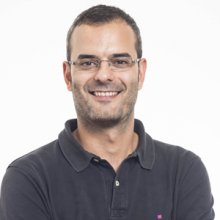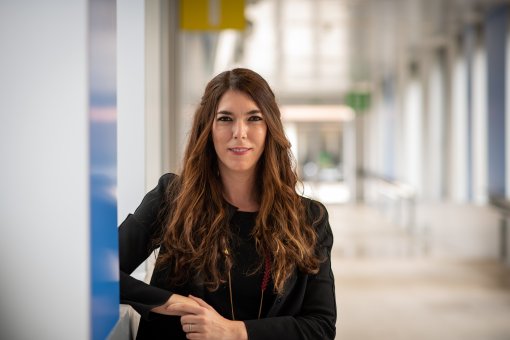Images
Participants

Contact

• The BBVA Foundation and IRB Barcelona hold the 38th Barcelona Biomed Conference from 14 to 16 November.
• 150 scientists, with a large international presence, discuss the latest advances in the cell dynamics that give rise to ageing and the development of tumours.
Ageing is the main risk factor for the development of cancer, and the features shared by these two biological processes are increasingly evident. This week the Institute for Research in Biomedicine (IRB Barcelona) and the BBVA Foundation are holding the 38th Barcelona Biomed conference “Quantitative dynamics of aging and premalignancy”. Held at the Sant Pau Art Nouveau Site on 14, 15 and 16 November, the event will be hosting 21 internationally recognised experts in the field who will present their latest breakthroughs.
Organised by Dr. John Dick, from the University Health Network of Toronto (Canada), and Drs. Salvador Aznar-Benitah and Alejo Rodríguez-Fraticelli, both from IRB Barcelona, this scientific gathering aims to integrate advances in cancer and ageing research, with the goal to identify common ground and advance knowledge. Over three days, 150 researchers from around the world are discussing the mechanisms of ageing, the initiation and evolution of cancer, the role of stem cells in cancer and ageing, cell plasticity, the circadian rhythm, and immune system processes, among other topics.
“This Barcelona Biomed conference has allowed us to invite the best scientists in the field at an international level, and it is an exceptional opportunity to debate and exchange knowledge and ideas with them,” explains Dr. Aznar-Benitah, ICREA researcher and head of the Stem Cells and Cancer lab at IRB Barcelona.
"If, at the end of the conference, the attendees have a new perspective, a broader vision of their field of study, or ideas for new research projects, then the conference will have been a success," says Dr. Alejo Rodríguez-Fraticelli, head of the Quantitative Stem Cell Dynamics lab at IRB Barcelona.
Epigenetics, clonal evolution, and blood as a study model
As a result of age and the effect of various environmental factors (such as diet, exercise, exposure to substances, etc.), gene functions undergo changes. These alterations are not mediated by mutations in the DNA sequence itself but rather by epigenetic modifications. Epigenetics plays an important role in ageing and also in the development of cancer, and it is one of the fields covered at the conference.
Another prominent field is clonal evolution. The appearance of mutations that give some cells the ability to divide more and better than their neighbours is at the very heart of tumour formation. These cells, which are identical, are called clones. In recent years, it has been observed that some mutations and the prevalence and evolution of these clones also play a role in ageing. This field is covered by several presentations at the conference.
Another strength of the conference is the talks focused on the study of blood cells and diseases. Blood is a tissue that is straightforward to work with because it is easy to extract (and extraction is relatively safe), and cells from blood can be readily isolated. Therefore, many of the discoveries about the dynamics of stem cells, whether in ageing, tumour formation, or interaction with the immune system, have first been observed in blood.
The "omics" revolution
Technological progress has been critical for the advancement of research. In this regard, an experiment in which only a few cells could previously be analysed now allows data from hundreds of thousands to be obtained. Research is thus accelerated, information from various disciplines can be better integrated, and conclusions are stronger because they are supported by more data.
Given the great relevance of technology, the conference also involves renowned experts in technologies such as individual cell sequencing, quantitative genomics, and clonal analysis, who will share the latest advances and the most innovative techniques.
In addition to international experts, the conference also features a large number of talks by young researchers and also poster sessions, which will round off the presentations and provide new perspectives.
About IRB Barcelona
The Institute for Research in Biomedicine (IRB Barcelona) pursues a society free of disease. To this end, it conducts multidisciplinary research of excellence to cure cancer and other diseases linked to ageing. It establishes technology transfer agreements with the pharmaceutical industry and major hospitals to bring research results closer to society, and organises a range of science outreach activities to engage the public in an open dialogue. IRB Barcelona is an international centre that hosts 400 researchers and more than 30 nationalities. Recognised as a Severo Ochoa Centre of Excellence since 2011, IRB Barcelona is a CERCA centre and member of the Barcelona Institute of Science and Technology (BIST).



